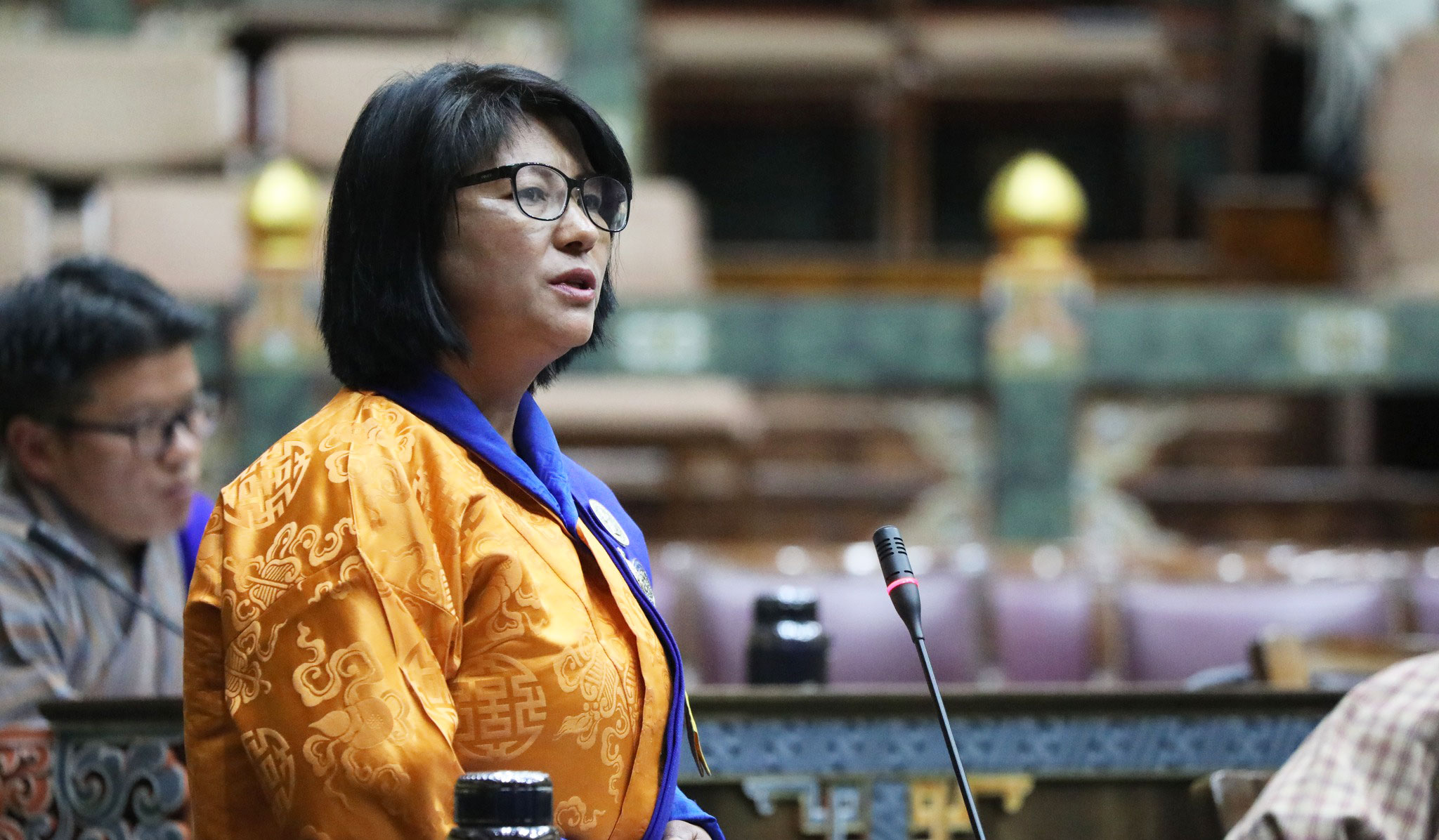Sherab Lhamo and Thinley Namgay
Samtse has met the criteria to become the fifth thromde in the country according to Infrastructure and Transport Minister Dorji Tshering.
Lyonpo was responding to questions from Members of Parliament on the establishment of thromdes in the National Assembly yesterday.
Chhumig-Ura’s Member of Parliament (MP) Drungtsho Karma Wangchuk asked the minister how many thromdes the government would establish before its term ends.
The Constitution mandates a Thromde A and a Thromde B in all dzongkhags. However, currently, there are only four class A Thromdes.
Phuentshogpelri-Samtse’s MP Ganesh Ghimiray asked for an update on the status of the establishment of a thromde in Samtse.
In 2019 during the question-answer session of the NA, the Prime Minister said that the next dzongkhag thromde will be established in Samtse. It was announced as a tribute and footprint of His Majesty the King gracing the 111th National Day celebrations in Samtse in 2018.
Lyonpo Dorji Tshering said that more important than declaring Samtse as a dzongkhag thromde was ensuring that it meets the criteria of a thromde and has all the necessary amenities. “Samtse has fulfilled the criteria and we are only left with declaring it as class A Thromde,” the minister said.
For a town to be declared a class A thromde, it needs to have a population of 10,000 or more irrespective of their census, a population density of 1,000 people or more per square kilometre, and where 50 percent or more people depended on non-primary activities. The region should also provide a revenue base for the thromde sufficient to pay for the construction, maintenance, and supply of services according to the Thromde Rules of 2011.
Jomotshangkha-Martshala’s MP Norbu Wangzom said that if the Election Commission of Bhutan (ECB) did not facilitate the postal ballot (PB) facility for people in the private and corporate sectors, then it could create problems.
“Some people are willing to choose a party that provides money and arranges transportation during the elections if they don’t get PB or facilitation booth (FB) facilities like in the recent National Council elections,” she said.
She asked Prime Minister Dr Lotay Tshering what the government’s plans are to address such election-related issues.
“Most citizens working in the private sector are those with low salaries and income. To travel to the village to vote will be challenging for them owing to financial constraints,” the MP said.
According to Norbu Wangzom, it is imperative to ensure easy access and a conducive environment to vote to strengthen democracy and make the public believe in democracy. “The government should create such environment and frame policies.”
She said that in the absence of PB and FB, a political party with resources could take advantage of the situation and engage in corruption.
Lyonchhen Dr Lotay Tshering said that any election-related matters could be addressed by the ECB. “The government has no authority to address issues related to voting.”
He said that the commission told the government that it was following the Election Act.


